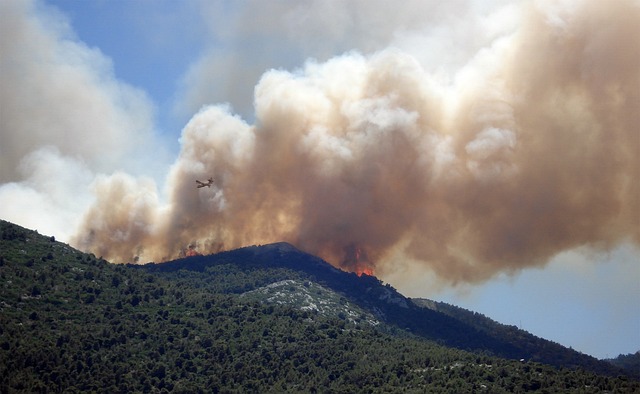2023 Marks pivotal moment in climate crisis response.
- January 3, 2024
- Posted by: Sinead Sprigg
- Category: Environmental, Global, Research Papers, Water Issues

The year 2023 is set to be remembered as a turning point in humanity’s struggle to address the climate crisis, with devastating events such as flash floods in Libya and wildfires in Canada and Europe. Former NASA scientist James Hansen expressed concern over the failure of governments to effectively combat global warming, stating, “When our children and grandchildren look back at the history of human-made climate change, this year and next will be seen as the turning point at which the futility of governments in dealing with climate change was finally exposed.”
Despite warnings from scientists and a record-breaking year in terms of global temperatures, political action has fallen short. The United Nations Cop28 summit concluded with a vague call for a transition away from fossil fuels. The Japanese meteorological agency reported temperatures in 2023 at 0.53°C above the global average between 1991 and 2020, surpassing the previous record set in 2016.
Climate experts are dismayed at the significant gap between scientific warnings and political initiatives – Prof. Johan Rockström of the Potsdam Institute for Climate Impact Research noted the unprecedented strength of climate occurrences, indicating that the Earth might be experiencing a shift in response to escalated human pressures, in a co-authored journal article.
The pace of change has also raised concerns about dramatic increases in sea surface temperatures and unexpected environmental shifts in the Antarctic. The deadly flood in September 2023 in Libya, killed over 11,300 people, and record-breaking forest fires in Canada, the US and Europe underscored the tangible impacts of climate change.
Raul Cordero, a climate professor at the University of Santiago, studies the wide-ranging effects of the heat in South America, including water stress in Uruguay, fires in Chile, severe drought in the Amazon basin and power shortages in Ecuador. He stated how “it is in socioeconomically marginalised urban communities of the global south that the effects of climate change are felt most deeply. Santiago de Chile, a major mid-latitude Andean city of 7.7 million inhabitants, is already undergoing the so-called “climate penalty” as rising temperatures worsen the effects of endemic ground-level ozone pollution.” (Source).
As the world continues to burn fossil fuels and forests, scientists warn that the anomalies and catastrophes of 2023 may become the new norm. Without radical and rapid change, failure may be ingrained in the climate system. The urgency for a generational shift in leadership is emphasised, as the consequences of inaction loom large on the horizon.
